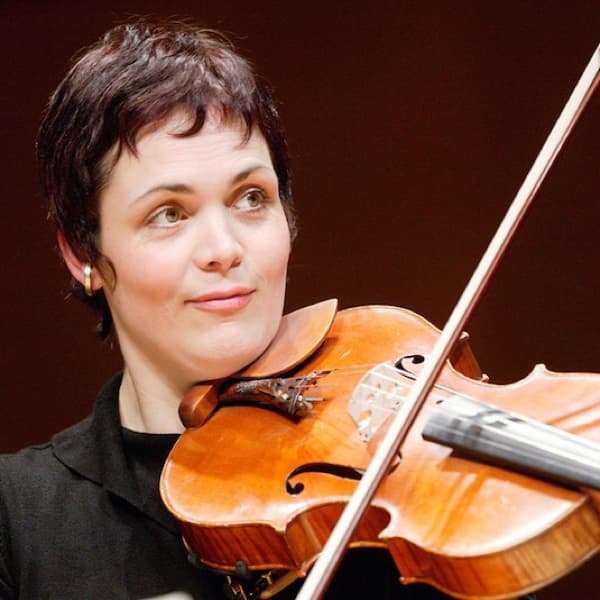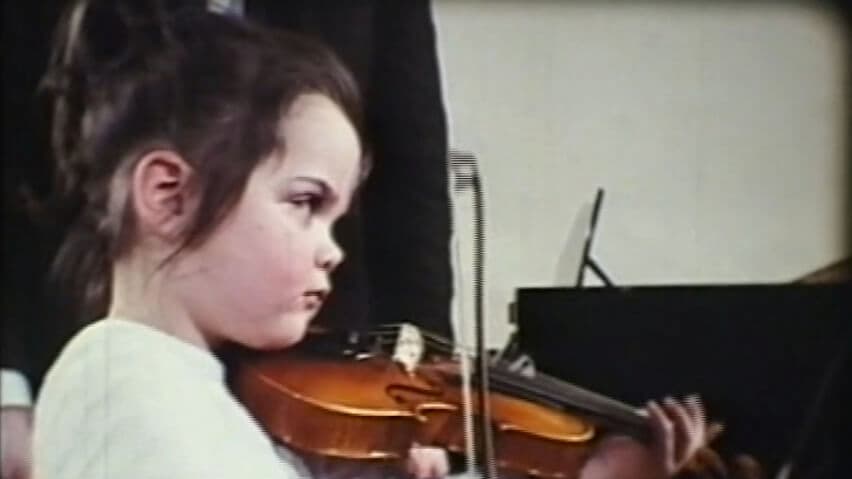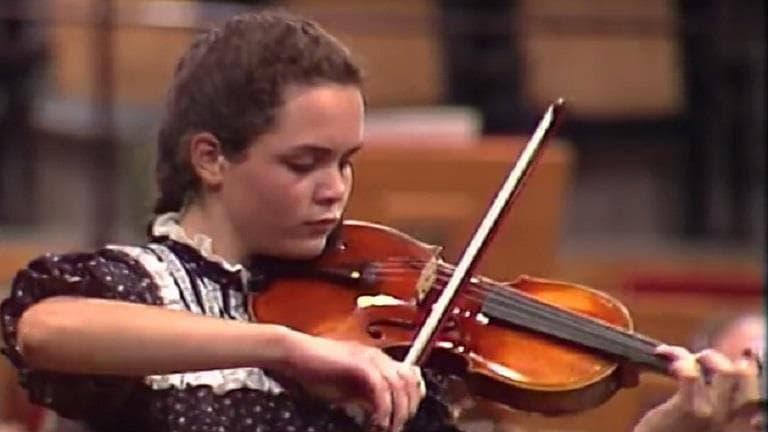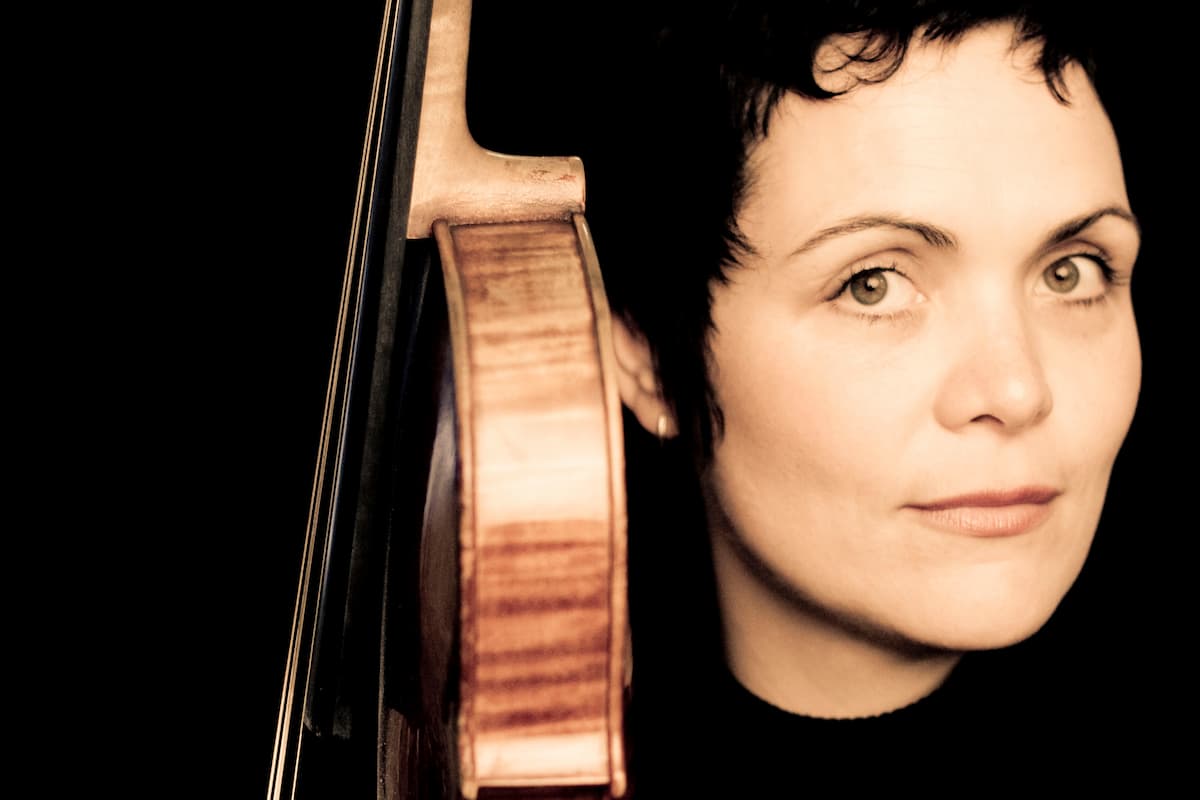Among today’s finest viola virtuosos, Tabea Zimmermann is lauded for her superb technique and an ample and supple tone. An artist of rare profundity, she was a prize winner at several international competitions, and she made her US début in 1993 and gave her first recital in Carnegie Hall in 1995. A critic wrote, “when Zimmermann plays, you get an impression of what musical perfection can be.” Zimmermann has inspired roughly 60 contemporary works and has produced just as many recordings.
Tabea Zimmermann Plays Kurtág’s “In Nomine – all‘ongherese”
Black Forest

Tabea Zimmermann
Born on 6 October 1966 in Lahr, located in the famous “Black Forest” of Germany, Tabea Zimmermann grew up in a highly musical family. All her older siblings played instruments, and she immediately wanted to play with them. Her musical talents were clearly evident, and at the age of three, Tabea started playing the viola because the piano, violin and cello were already taken by her older siblings.
It had been the suggestion of her sister’s violin teacher, who told them to avoid playing the same instruments in order to make chamber music possible from the start. As Zimmermann recalled, “I joined my first string quartet at age 4.”
Johannes Brahms: Viola Sonata No. 1 in F Minor, Op. 120, No. 1 (Tabea Zimmermann, viola; Kirill Gerstein, piano)
Education

Tabea Zimmermann as a child
Zimmerman took lessons at the Lahr Music School, and her first teacher, Dietmar Mantel, influenced her greatly. As she explained, “but it took a long time until I realised that.” She also remembers that he “found ways of making learning and practising joyful, even for a young child.” Her second teacher, Ulrich Koch in Freiburg, “tried very hard to give me more stability (less flexibility) and make me follow his rules of equal bow speed throughout a phrase, same speed vibrato, etc.”
Zimmermann went to Salzburg to study with the legendary conductor and violinist Sandor Végh at the Mozarteum. “I finally understood,” she recalled, that all that fantasy and flexibility were actually wonderful qualities!” Her career was launched by winning in quick succession the Geneva, Maurice Vieux and Budapest Competitions between 1982 and 1984.
Tabea Zimmermann Plays Stamitz’s Concerto in D Major, Op. 1
Competitions

The young Tabea Zimmermann in Geneva
Zimmermann remembers the Geneva competition as a happy occasion. As she told The Strad Magazine, “when I see the video now, it’s not me I see, it’s a very young girl with no idea of what’s to come.” She was only 15, and when she returned to Freiburg, her teacher pressured her to enter the Paris competition in 1983, which she found a much more stressful experience. “I wanted to prove to myself, to my teacher, to the world that I merited the Geneva Prize. I won, but I did not enjoy the Paris competition.”
Reflecting on her early experiences, Zimmermann believes that early fame brought on by multiple key competition wins “is dangerous for young musicians. It places pressure on them that inhibits their ability. Ultimately, it robs talented musicians of the ability to follow their instincts and develop unique musical voices that set them apart from the crowd later in their careers.”
Alexander Konstantinovich Glazunov: Elégie in G Minor, Op. 44 (Tabea Zimmermann, viola; Thomas Hoppe, piano)
Commissions and Change

© Marco Borggreve
Tabea Zimmermann’s commitment to contemporary music originated from sheer necessity. As she explained, “As a violist, I had to struggle early on with the fact that there is relatively little first-rate original literature for my instrument… Learning new works means being much closer to the process of composing and learning from that. I am fascinated by the acoustic equivalent of the process of shaping and developing sound at the moment, playing as a creative force.”
For Zimmermann, “the conductor as artistic director, who is also the boss of his musical staff, should have outlived his usefulness. Music and power do not go together!” Zimmermann wants to change the old structure in society and music and perceives musical direction as very positive “if you are allowed to get involved and yet feel a direction.” As such, Zimmermann makes small contributions to this process of change by representing a chamber music community with her own concert activities.
For more of the best in classical music, sign up for our E-Newsletter
